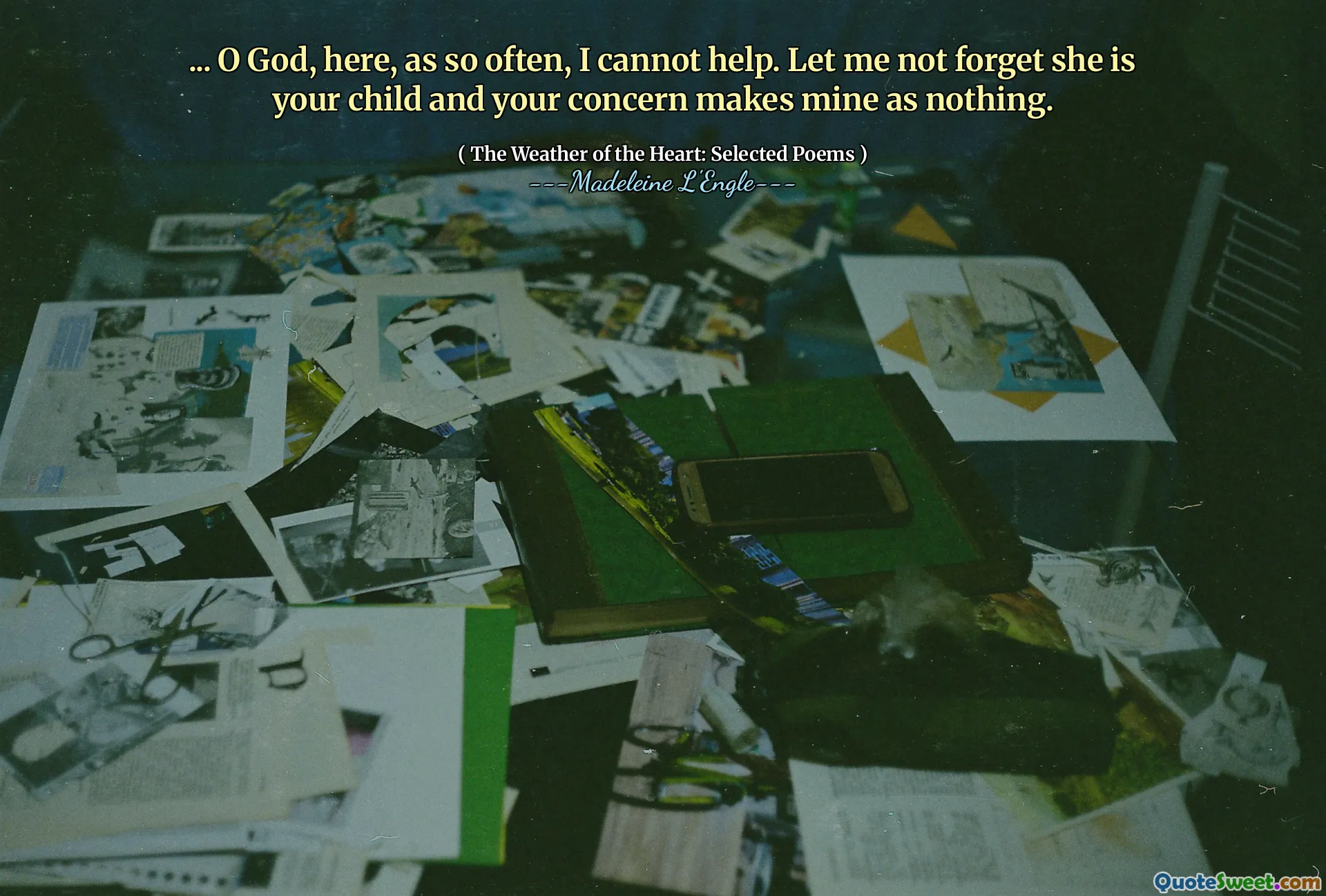
... O God, here, as so often, I cannot help. Let me not forget she is your child and your concern makes mine as nothing.
This quote reveals a profound moment of surrender and recognition of divine authority and care. The speaker is acknowledging their own limitations and the overwhelming nature of compassion, sorrow, or responsibility they feel, yet simultaneously entrusting this emotion to God's higher understanding and love. The plea to not forget that the individual in question is God's child reminds us that every person holds intrinsic divine dignity, deserving of our compassion and respect. It challenges us to view suffering and concern not merely through our human lens but through a divine perspective that elevates our capacity for unconditional care.
In a spiritual sense, this reflection encourages humility—the acknowledgment that our strength and insight are finite, but through faith, we can find solace in trusting God’s concern and purpose. It also speaks to the universal experience of helplessness faced when confronted with the pain of others, especially loved ones, and the recognition that such feelings are valid but meant to be transformed by divine perspective. To see others as God's children elevates our sense of responsibility from mere human concern to a divine mission, inspiring us to act with love and patience.
Overall, the quote encapsulates a moment of prayerful humility and trust, urging us to surrender our burdens and doubts, and to remember that the divine care that sustains us is infinitely greater. It reminds us that our compassion is rooted in divine love, and that by embracing this, our efforts become part of a larger, divine purpose in caring for others.




